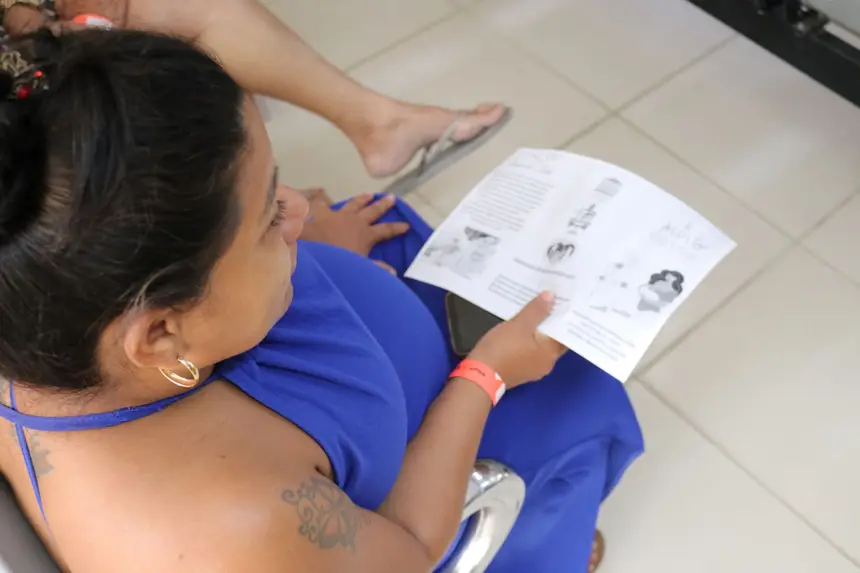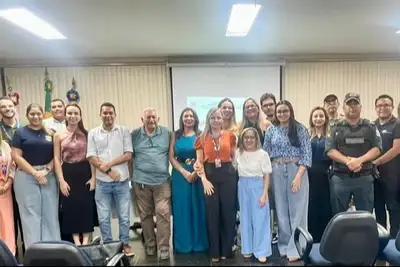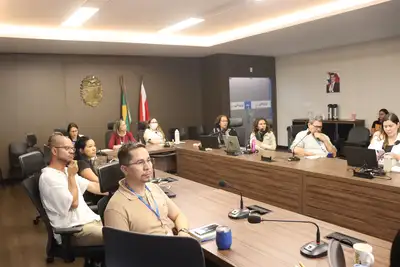Santa Casa guides pregnant women in high-risk prenatal care on breastfeeding
Summary
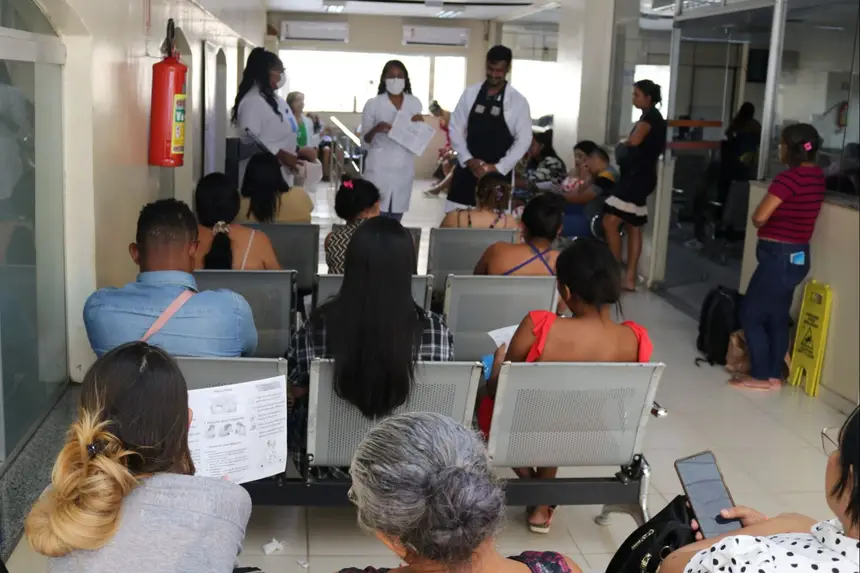
"In my second pregnancy, I had a lot of difficulty breastfeeding; I couldn't manage my baby's latch, so I ended up with many fissures on my breast and went to learn about breastfeeding, about the latch, about how to position the baby, after already having the fissures. Receiving this guidance now, before our baby is born, is very, very nice and important for all of us mothers."
The statement is from Carolina da Silva Felix, who is in the final stretch of her pregnancy with Lisa, her third daughter. She and other pregnant women receiving care in the High-Risk Prenatal Program at the Santa Casa Women's Outpatient Clinic are receiving this month, through lectures, guidance on breastfeeding conducted by a team of nurses from the obstetric nursing residency at UFPA, which develops training activities under the guidance of a nurse from Santa Casa.
The lectures emphasize that breastfeeding goes beyond the nutrition of the baby, as it becomes an act of love, protection, and health, explains nurse Mayara Rodrigues. "In addition to providing all the nutrients the baby needs, breast milk strengthens the bond between mother and child and reduces the risk of diseases for both," says Mayara.
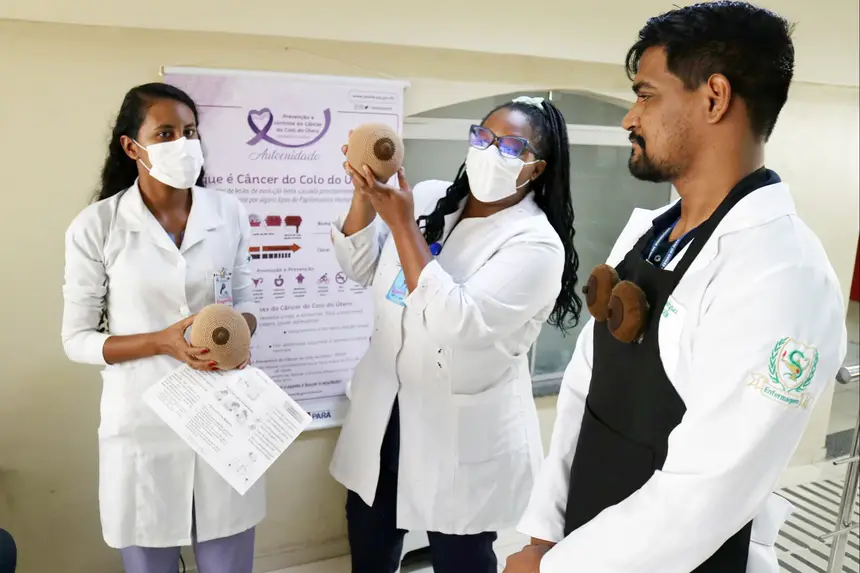
The nurse also emphasizes the importance of women preparing during pregnancy, to be physically and emotionally well, in addition to being informed. "It is at this moment that the mother prepares not only physically but also emotionally to breastfeed. When the pregnant woman receives clear information about the benefits of breast milk, the techniques for correct latching, the importance of on-demand feeding, and how to deal with possible difficulties, she feels more confident and secure for this very special moment. Emotional support is essential in this process, as having difficulty does not mean failure, nor that the mother has unlearned how to breastfeed. Each baby is unique, and each breastfeeding experience is new. With help and patience, they can achieve what they desire," details Mayara Rodrigues.
Among the main doubts about breastfeeding expressed by pregnant women are the correct position for breastfeeding, how often the baby should nurse, how to know if the child is latching correctly onto the breast, and whether colostrum is sufficient for the newborn. All these doubts can be clarified during the guidance that uses resources such as printed materials and fabric breasts, where some techniques can be demonstrated.
"We know that breastfeeding is not always easy, and that is why knowledge prevents problems, avoids early weaning, and gives autonomy to the mother to make decisions. Guiding about breastfeeding is caring; it is supporting the woman so that she experiences this period with more tranquility, knowing that she is offering the best for her baby and for herself," concludes the nurse.
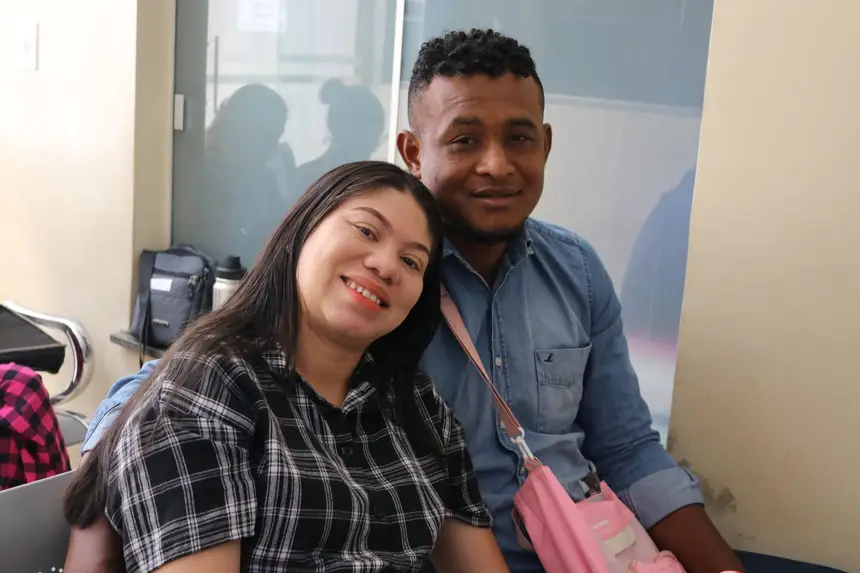
When and where to seek guidance on breastfeeding
The ideal is that guidance on breastfeeding is provided during prenatal care at basic health units or another service where the pregnant woman is monitored. If, even after childbirth, the mother still has difficulties, she should return to the health unit or seek help at the maternity hospital where she gave birth.
The Human Milk Bank (BLH) of Santa Casa also has a multidisciplinary team that offers daily guidance for the needs of mothers of newborns hospitalized in neonatal units and joint accommodation of the maternity hospital, who have difficulties breastfeeding their babies.
In addition, through prior scheduling, the BLH team assists mothers external to the hospital who need help breastfeeding. Appointments can be made from Monday to Friday by calling: 3251-7311.


